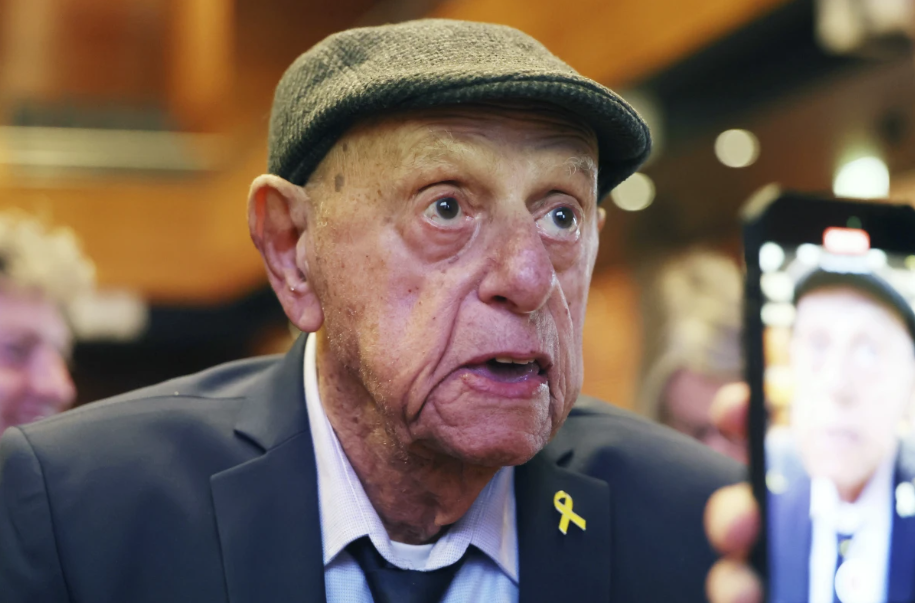Germany recently commemorated the 80th anniversary of the liberation of the Buchenwald concentration camp. The ceremony took place in Weimar, near the site of the former camp, and was attended by notable figures including the Governor of Thuringia, Mario Voigt, and former German President Christian Wulff, alongside Holocaust survivors from across Europe.
Governor Voigt described Buchenwald as “a place of systematic dehumanization,” emphasizing that the atrocities committed there were designed to strip individuals of their humanity and dignity. Established in 1937, Buchenwald became one of the largest Nazi concentration camps, where over 56,000 out of 280,000 inmates perished due to executions, starvation, illness, and inhumane medical experiments before its liberation on April 11, 1945.
Voigt also highlighted the relevance of this history in today’s context, referencing the October 7, 2023, Hamas attack on Israel as a stark reminder that antisemitism and the intent to exterminate Jews persist in the modern era. This attack resulted in over 1,200 deaths and 251 hostages, escalating the conflict between Israel and Hamas. The Israeli military response in Gaza has led to over 50,000 Palestinian deaths and more than 115,000 injuries, according to Gaza’s Health Ministry.
In his speech, Wulff expressed deep concern over the current global political climate, drawing parallels between today’s rising radicalization and the conditions that enabled Nazi atrocities. He stressed the importance of actively supporting democracy and human rights, warning that “evil must never be allowed to prevail again.”
Wulff also criticized the far-right Alternative for Germany party, cautioning against underestimating the dangers posed by their ideology, which he believes fosters an environment of intolerance and insecurity within Germany.
Holocaust survivor Naftali Fürst, now 92, shared his harrowing memories during the wreath-laying ceremony at the camp’s former roll call area. Having endured life in four concentration camps, including Auschwitz, Fürst vividly recalled the haunting images of corpses being collected and cremated. He urged the younger generation to carry forward the responsibility of remembrance, stressing the urgency of standing up against human rights violations and threats to democracy.
In the lead-up to the event, there was controversy over the planned participation of philosopher Omri Boehm, known for his criticism of the Israeli government. His invitation was later withdrawn amid objections from Israeli officials.
The Holocaust remains a profound reminder of the consequences of hatred, intolerance, and unchecked power, with the memory of the six million Jews murdered by the Nazis serving as a solemn call to ensure that such atrocities are never repeated.













